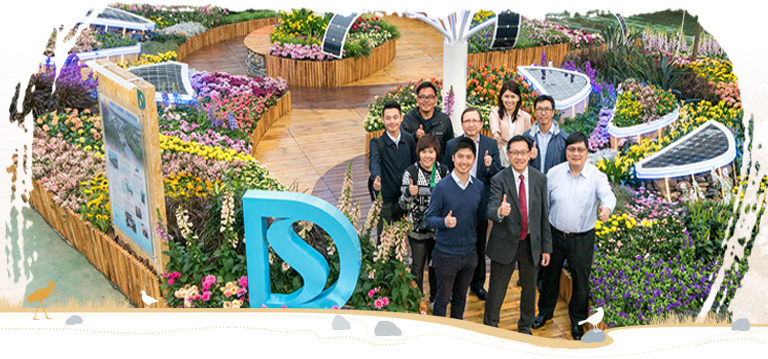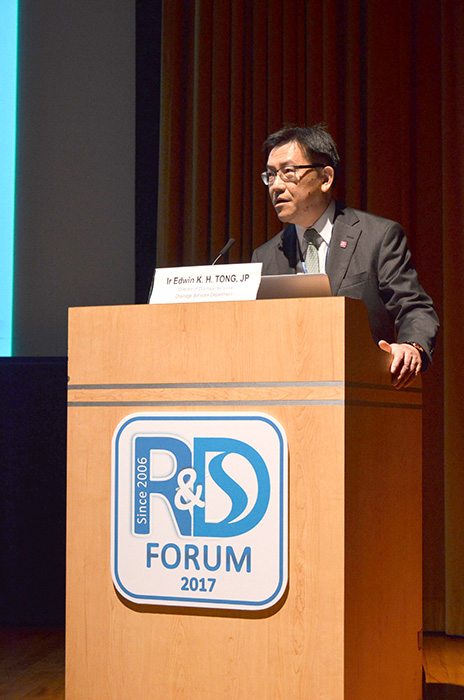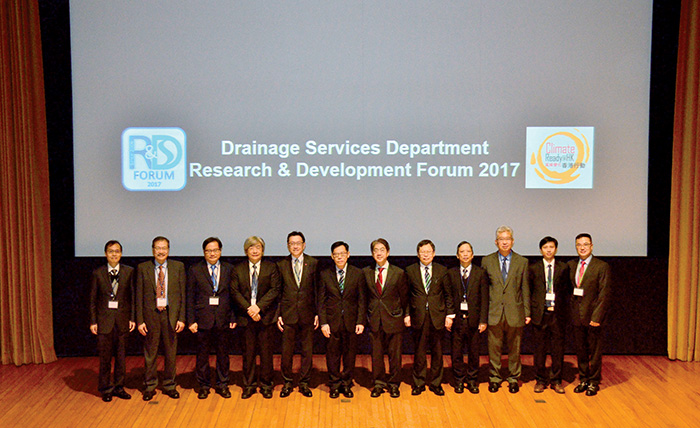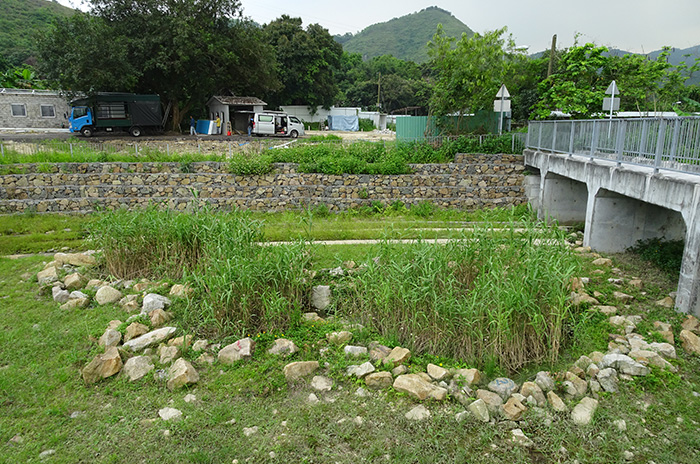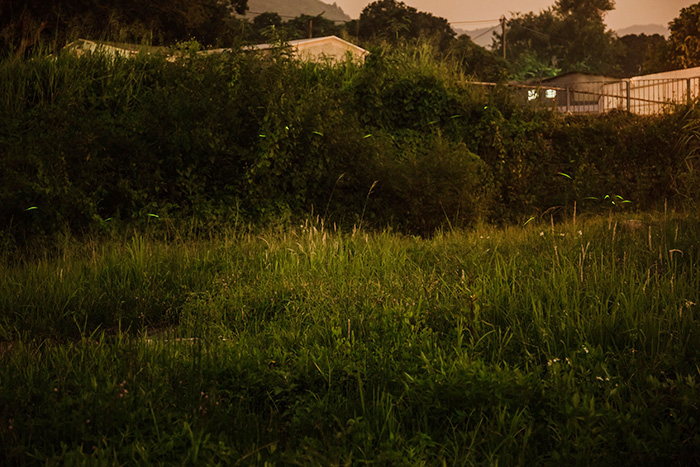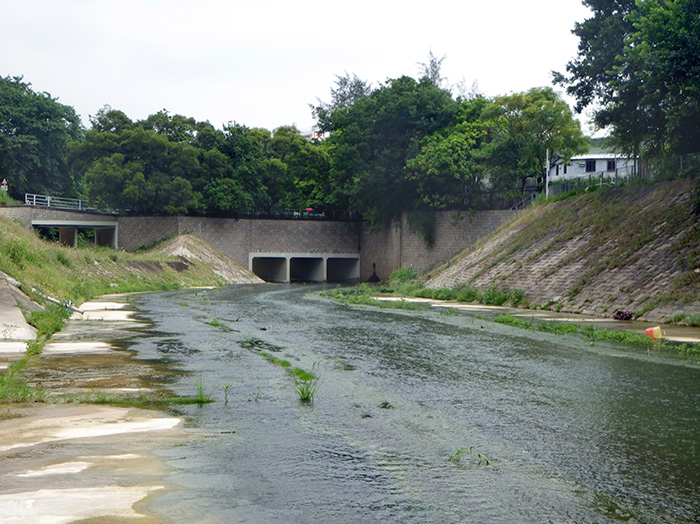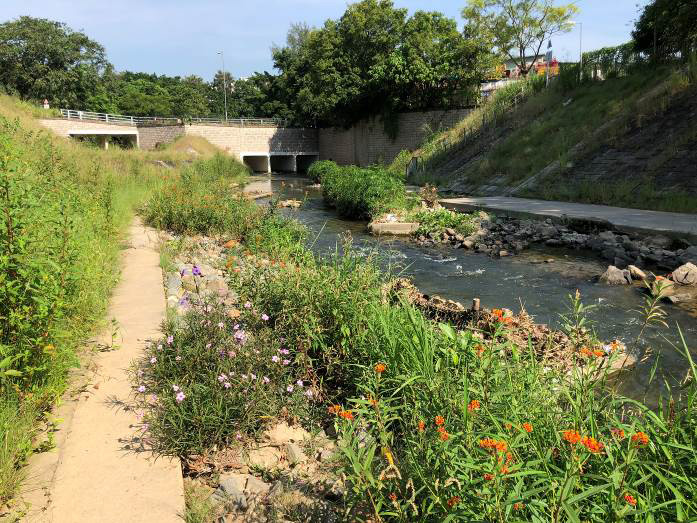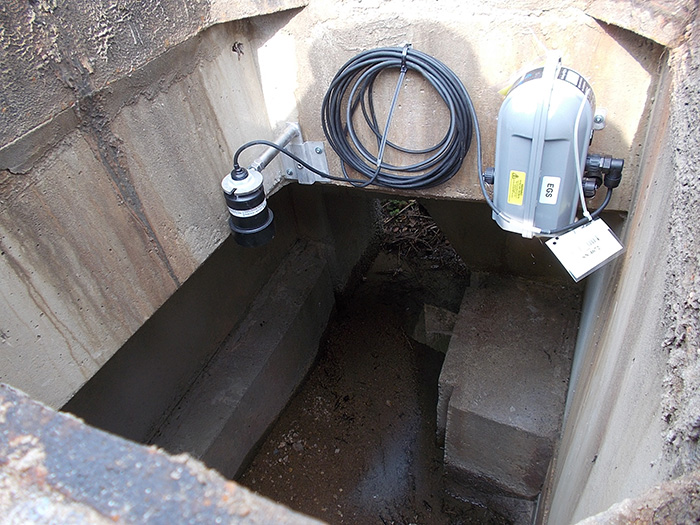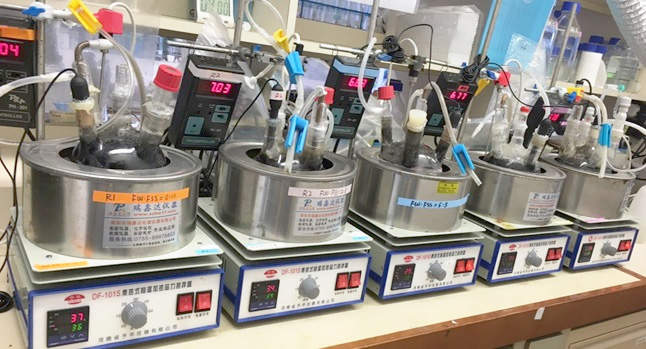Highlights of the Year
DSD Research & Development Forum 2017
The DSD Research & Development Forum 2017 was successfully held on 14 November at the Hong Kong Science Museum. More than 500 local academics, professionals and industry representatives participated and exchanged ideas. Industry leaders, professors and experts were invited to deliver thematic speeches on "Smart, Green and Resilient Wastewater Management" and "Smart, Green and Resilient Stormwater Management", sharing their experience in the application of smart technologies for sewage treatment and stormwater drainage as well as the development of green innovation, so as to encourage sectorial collaboration and technological innovation development.
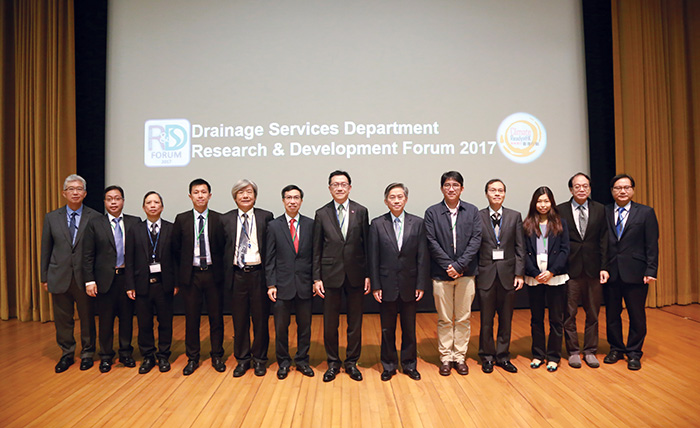
Group photo of Mr. HON Chi-keung, Permanent Secretary for Development (Works) (sixth right), Mr. Vincent MAK Shing-cheung, Deputy Secretary for Development (Works) (sixth left), Mr. Edwin TONG Ka-hung, Director of Drainage Services (seventh left), Mr. MAK Ka-wai, Deputy Director of Drainage Services (fifth left), and speakers of the afternoon session
Highlights of Research & Development Studies
Study on Enhancement of Channel Biodiversity
Attempting to conserve river ecosystems, DSD has been actively promoting the concept of revitalizing water bodies. In recent years, channel greening and biodiversity features have been introduced in our drainage improvement projects for effective drainage, beautification and biodiversity enhancement. During the year, we commenced on-site trials to revitalise drainage channels and boost their ecological value through rehabilitation of habitats for water-related organisms such as fireflies. The study not only provided a specific and viable solution for nullah and river revitalisation, but also helped evaluate the effect of improved water quality and river habitat restoration on biodiversity enhancement.
Study on Smart Sewerage Monitoring System Pilot Scheme
To better understand the real-time situation of our drains and sewers and ensure the drainage system is in good operating condition at all times, we collaborated with academics and industrial partners on the Smart Sewerage Monitoring System Pilot Scheme. Various sensors were installed in manholes to collect data for analysis that would optimise our daily operation and maintenance works.
Study on Odour Control
To address the issue of odour and gases generated in sewers and drains, we conducted a study on controlling odour from drainage and sewage systems. The effectiveness of hydrogel for inhibiting common odour (Hydrogen Sulfide (H2S)) was evaluated. It is found that hydrogel can inhibit the growth of anaerobic bacteria and reduce the generation of H2S in drainage systems, which can in turn control the odour effectively.
The study was carried out in several drainage systems operated by DSD, involving regular testing of air and water samples, and monitoring changes in the bacteria and gas contents. Data on hydrogel controlling odour in drainage systems were obtained during the first stage of the study. To learn more about the effectiveness of hydrogel and its best application, DSD is commencing stage two of the study, aiming to identify the effectiveness of hydrogel in controlling other odours, as well as the feasibility of full application of hydrogel to suppress odour in drainage systems.
Study on Operating Conditions for the Co-digestion of Food Waste and Sewage Sludge
The technology of “Food Waste/Sewage Sludge Anaerobic Co-digestion” can further reduce the volume of solids and increase the production of renewable energy - biogas. As a result, the Drainage Services Department has conducted a series of laboratory-scale studies on the operating conditions for this technology. At the same time, the engineering works of “Food Waste/Sewage Sludge Anaerobic Co-digestion Trial Scheme” mentioned in the Policy Address of 2016 are at the construction stage and will commence operation in 2019.
